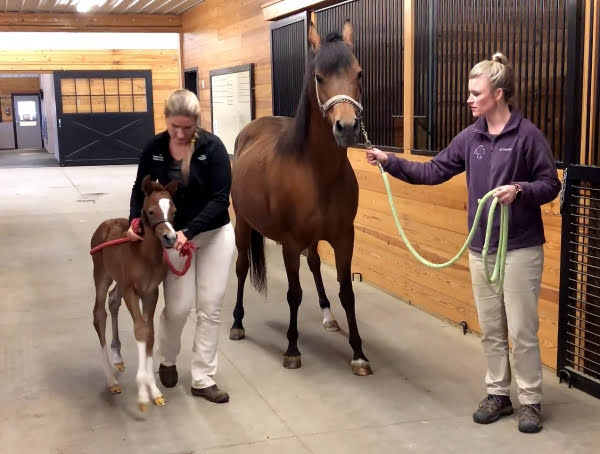New Foal Exams
Thousands of foals are born every year, and in most cases, everything goes well. However, in approximately 10-20% of foals there is an underlying problem. Just like human babies are examined shortly after birth to make sure they are healthy, newborn foals should be examined. A new foal exam (also known as a neonatal exam) allows the veterinarian to evaluate a foal from head to tail to check for overall health as well as identify any congenital (born with) or acquired health problems. Key areas that are evaluated during a new foal exam are the eyes (to check for cataracts), mouth (to check for a cleft palate or an over/under bite), heart (to check for a murmur), lungs (to check for aspiration pneumonia), ribs (to check for fractures due to birth), belly button (to check for bleeding, infection, or a hernia), and legs (to check for crookedness). In addition, a blood test is recommended to check the foal’s immunoglobulin (IgG) level, which measures how much protection the foal received from the mare’s colostrum. If problems are identified early, treatment can be targeted at correcting them before they become a problem, or monitoring them to makes sure they resolve.
A new foal exam is recommended 18-24 hours after the foal has nursed, as this is the ideal time to check the IgG. If problems are noted earlier, a prompt examination is recommended as foals can become sick very quickly due to their small size and weaker immune system when compared to adult horses. As part of a routine new foal exam, the veterinarian can make recommendations for care for your foal during the neonatal period and beyond.




